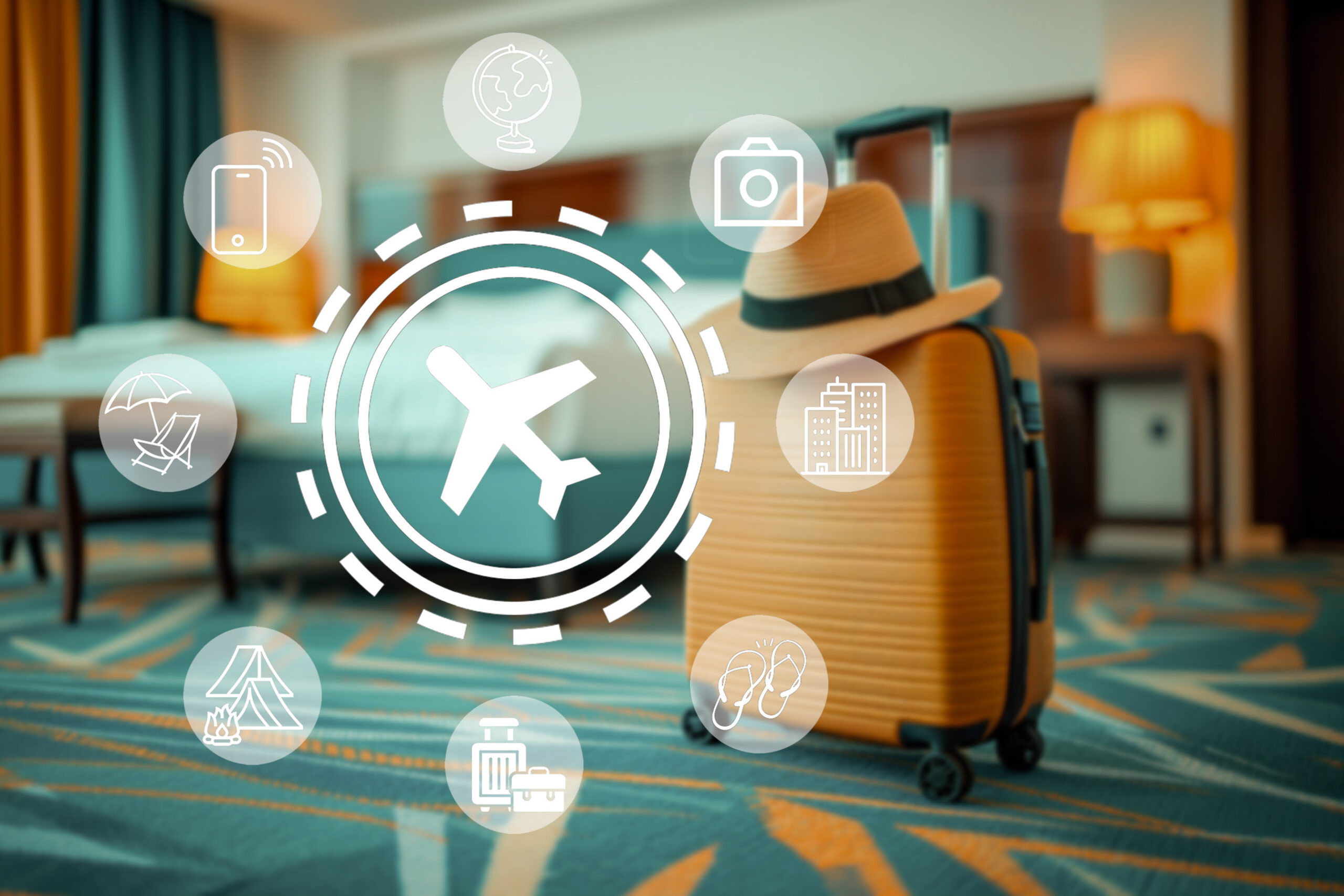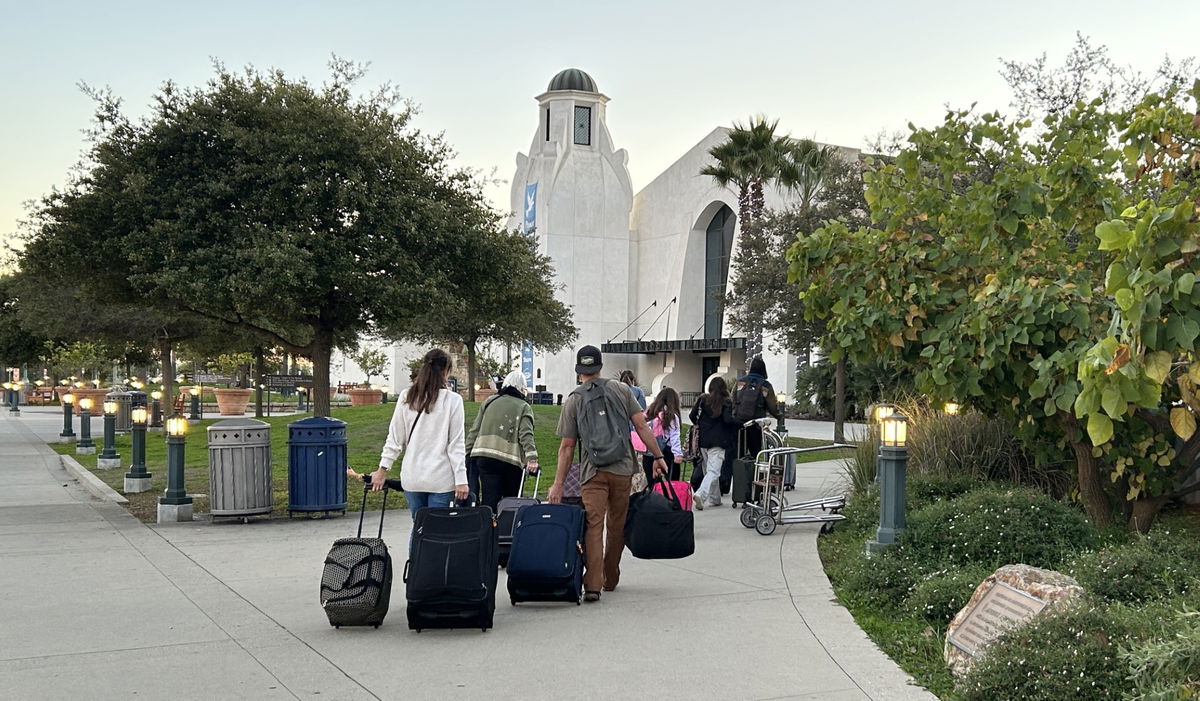Travel
How Technology will Transform the Travel and Hospitality Experience in 2025 |

By Anup Prasad, SVP & Business Unit Head at Cognizant – 12.18.2024
2025 will be the year of enhanced guest experiences. The travel and hospitality industry is on the brink of a transformative year, driven by shifting traveler preferences and the increasing integration of AI. Emerging consumer groups are reshaping the market, while AI is revolutionizing every aspect of the travel experience.
With deeper insights into customer behavior, hospitality brands are redefining what modern travel experiences look and feel like. The following are three travel and hospitality trends for 2025, with tips on how leading brands can distinguish themselves in the marketplace.
Gen Z’s influence on the travel and hospitality industry will skyrocket
The travel and hospitality sector continues to grapple with economic uncertainties and competitive pressures, making cost management and efficiency paramount. With each passing year, the influence of younger travelers grows stronger, as Gen Z – set to comprise 40% of global consumers by 2030 – dictates new norms in travel. As their financial power grows, fueled by an estimated $68 trillion wealth transfer from older generations over the next two decades, travel and hospitality brands must adapt their engagement strategies to stay top of mind.
Gen Z’s digital nativity and preference for authenticity and social consciousness are transforming how travel and hospitality brands show up in the market. Companies must create meaningful, value-driven connections that resonate with this generation’s values. However, they must find a way to do this while still reducing operating costs.
Projected to save the travel and hospitality industry billions, innovations in automation and technology adoption will be crucial for streamlining operations and delivering seamless, satisfying experiences. Hospitality brands that effectively harness these technological advancements will be well-equipped to meet the evolving demands of Gen Z guests.
Hospitality brands with exceptional customer experiences will lead the pack
In 2025, the adage “experience is king ” will be truer than ever, with experiential travel taking center stage. Leading travel and hospitality brands will continue to prioritize exceptional customer experiences, as travelers seek personalized, immersive journeys that go beyond traditional offerings. To meet this demand, brands are increasingly adopting “retailification” principles, creating products and services that are experiential and engaging, such as pop-up experiences, curated tours, and personalized itineraries.
For example, airlines are expected to significantly invest in travel media networks. These networks are poised to leverage AI-driven analytics and virtual reality to offer real-time, personalized recommendations and immersive virtual tours. This will enhance in-flight experiences, providing customers with tailored entertainment options and dining selections for a more satisfying journey.
However, delivering exceptional customer experiences is not possible without empowering associates to create these compelling experiences. By equipping frontline workers with advanced tools and insights, they can proactively anticipate and address customer needs, elevating travel experiences and driving customer satisfaction and loyalty.
In 2025, technology, such as AI, will bridge the gap between low-skill and knowledge workers, enabling staff to focus on high-value tasks. These innovations will also empower frontline workers to swiftly rectify poor guest experiences, ensuring prompt corrections to enhance overall guest satisfaction.
Winning hospitality brands will innovate with automation, AI and IoT
One can’t discuss 2025 predictions without highlighting the pivotal role technology plays. Specifically, AI will become an integral part of many products rather than a standalone feature – and brands will have to accept with the fact that AI is no longer optional – it’s essential.
To simplify matters, here are three key areas where I predict the travel and hospitality industry will intensify its efforts with AI and other cutting-edge technologies in the coming year:
- Automation: In 2025, automation will touch every stage of the travel journey, from initial booking to post-trip feedback. Automating routine activities, like hotel check-ins, is expected to save the industry up to $2 billion annually. This will elevate guest experiences by freeing up staff to focus on meaningful interactions, boosting customer satisfaction and loyalty. By year-end, AI and machine learning will manage over half of all travel bookings, streamlining processes and creating smoother, more enjoyable experiences for guests. Companies using AI-powered recommendation engines have already seen a 3% improvement in booking conversion rates, highlighting the benefits of these technologies.
- AI agent networking: The rise of AI agent networking will create a seamless, interconnected ecosystem that boosts operational efficiency and guest satisfaction. By 2025, AI networking will enable more intuitive and responsive interactions, allowing hotels, airlines, and travel agencies to anticipate and meet the unique needs of each traveler. Recent research forecasts a 45% compound annual growth rate in the global AI agents market from 2024 to 2030. AI agents will optimize dynamic pricing, personalized marketing, predictive maintenance, and customer service to deliver more personalized, memorable experiences.
- IoT: The integration of Internet of Things (IoT) innovations, like voice-activated room controls, keyless entry systems, and AI-powered concierge services, is set to become standard in many hotels by 2025. With the number of IoT devices in smart hotels expected to reach 30.9 billion, connectivity and automation enhancements will be significant. Advanced data analytics will provide deeper insights into guest preferences, enabling hyper-personalized services. As technology advances, the line between luxury and standard accommodations will blur, with even mid-range hotels adopting smart technologies to offer premium services to all guests.
 Anup Prasad is the SVP & Business Unit Head for the Consumer Business in the Americas at Cognizant, a solution provider that helps clients modernize technology, reimagine processes and transform experiences so they can stay ahead in our fast-changing world. In his role as BU Head, Anup is responsible for strategic direction and operational performance of Cognizant’s business in the Consumer Industry in Americas, which includes clients in the consumer goods, travel, restaurant and hospitality sectors.
Anup Prasad is the SVP & Business Unit Head for the Consumer Business in the Americas at Cognizant, a solution provider that helps clients modernize technology, reimagine processes and transform experiences so they can stay ahead in our fast-changing world. In his role as BU Head, Anup is responsible for strategic direction and operational performance of Cognizant’s business in the Consumer Industry in Americas, which includes clients in the consumer goods, travel, restaurant and hospitality sectors.
Are you an industry thought leader with a point of view on hotel technology that you would like to share with our readers? If so, we invite you to review our editorial guidelines and submit your article for publishing consideration.






_web.jpg?height=635&t=1734595314&width=1200)



